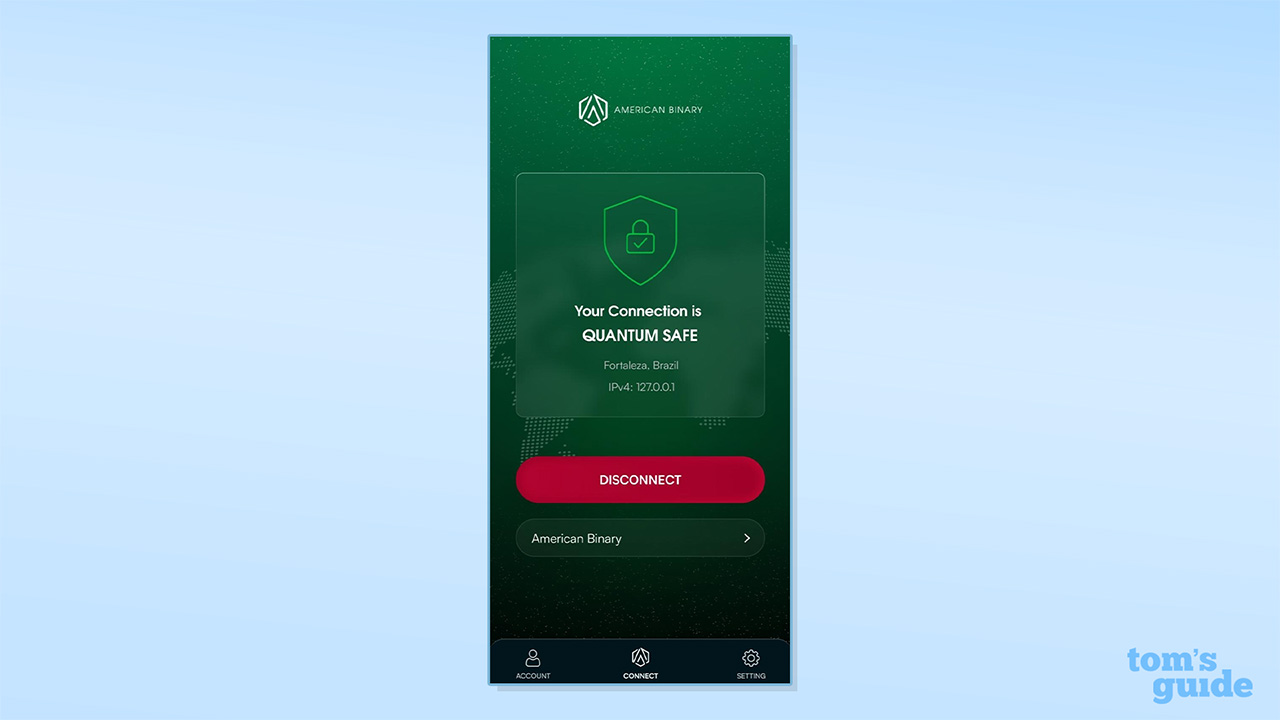American Binary launches world's first NSA-compliant quantum-resistant VPN
Post-quantum encryption is no longer exclusive to consumer VPNs

Adopting post-quantum encryption is a necessity for the best VPNs in order to continue protecting users against new computing developments.
The same applies for the best business VPNs, and cybersecurity company American Binary has launched its new quantum-secure VPN designed for businesses, Ambit Client.
American Binary says it is the first and only enterprise VPN to achieve full compliance with the National Security Agency's (NSA) Commercial National Security Algorithms (CNSA) 2.0 standards for post-quantum encryption.
The VPN aims to defend against "Store Now, Decrypt Later" (SNDL) attacks. These are two-part attacks, beginning with the collection of encrypted data, with the aim of decrypting it once quantum computers become widely available – an event known as "Q-Day."
How has this been achieved?
Ambit Client has implemented quantum resistance in four key components to meet CNSA 2.0 standards – Digital Signature, Key Exchange, Bulk Encryption, and Hashing.
ML-KEM cryptography has also been introduced and is designed to resist both conventional and quantum computer attacks.
American Binary said it has also upgraded its networking technology, enhancing performance, user experience, and speeds.
The VPN can be installed in minutes and features one-button activation. Post-quantum encryption is enabled automatically until the user deactivates it, ensuring the highest levels of protection at all times.
Business VPNs are designed for multiple employees to access them simultaneously, and allow for the sharing of encrypted files and protecting a business network. Ambit Client can be deployed in two ways, depending on the needs and desires of the business.

The "SaaS for Enterprise" option is for those wishing to minimize the management of their VPN. The Ambit Client Controller and Tunnel are both cloud-hosted by American Binary, while the VPN is installed on users' devices.
The "On-Premises for Enterprise" option is for those desiring maximum control of Ambit Client. Ambit Client Controller and Tunnel are both hosted in the business' environment and the VPN is installed on users' devices.
Ambit Client is available now for Windows 10 and 11, and Mac and iOS support is expected in February 2025. March 2025 will see the product launch on Android devices, and Linux will receive Ambit Client in April 2025.
As reported in PR Newswire, Kevin Kane, CEO and Founder at American Binary, said: "The quantum threat isn't a future problem – it's happening now."
"While other VPN providers claim quantum resistance, Ambit Client is the only solution that delivers complete protection across all four critical cryptographic components required by CNSA 2.0."
Consumer VPNs are also beginning to adopt post-quantum encryption. NordVPN currently offers post-quantum encryption protection in its Linux app, and in an interview with Tom's Guide, IPVanish CCO, Subbu Sthanu, said the provider was planning a 2025 release.
However, ExpressVPN is leading the way and has implemented ML-KEM post-quantum encryption into its Lightway protocol across all major platforms.
Disclaimer
We test and review VPN services in the context of legal recreational uses. For example: 1. Accessing a service from another country (subject to the terms and conditions of that service). 2. Protecting your online security and strengthening your online privacy when abroad. We do not support or condone the illegal or malicious use of VPN services. Consuming pirated content that is paid-for is neither endorsed nor approved by Future Publishing.

George is a Staff Writer at Tom's Guide, covering VPN, privacy, and cybersecurity news. He is especially interested in digital rights and censorship, and its interplay with politics. Outside of work, George is passionate about music, Star Wars, and Karate.
You must confirm your public display name before commenting
Please logout and then login again, you will then be prompted to enter your display name.
